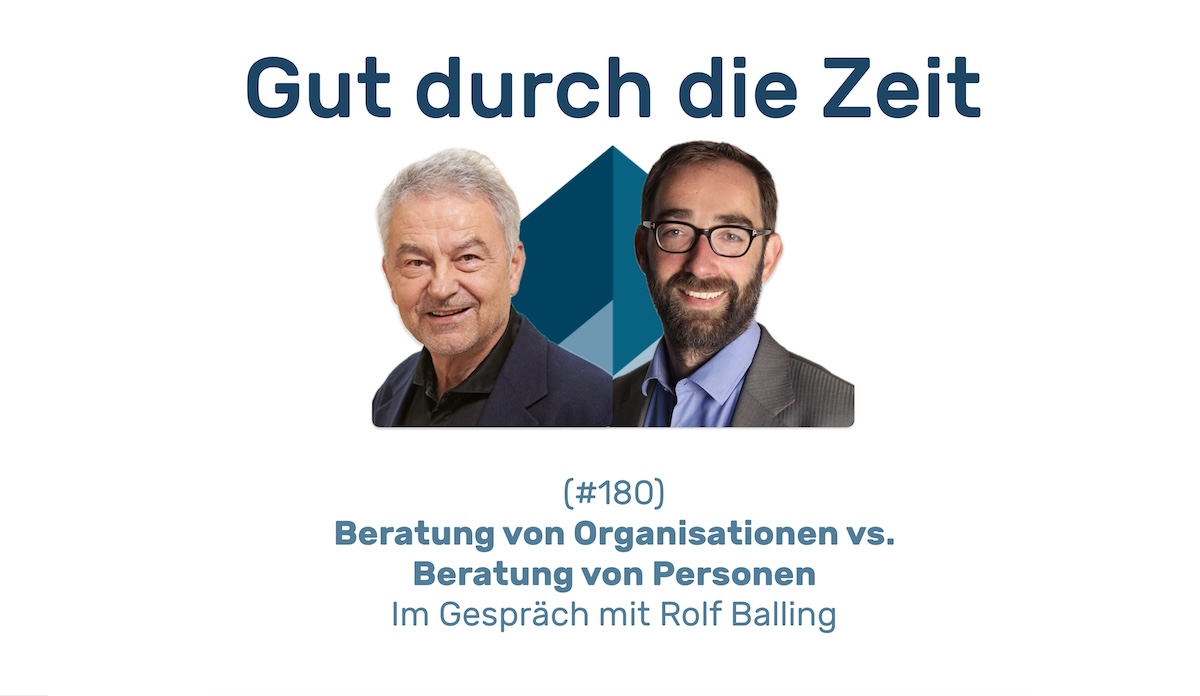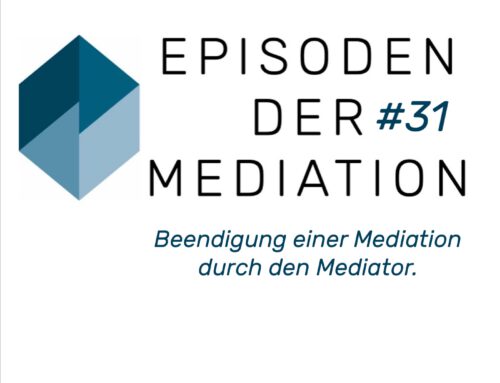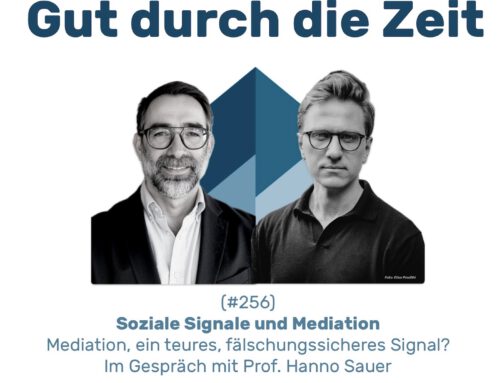INKOVEMA Podcast „Well through time“
#180 – Advising organisations vs. individuals
What are the differences between advising organisations and advising individuals?
In conversation with Rolf Balling
Rolf Balling, Diplom-Kaufmann (University of Cologne) with a specialisation in social psychology, 7 years in management functions (marketing/controlling) at Alcatel-SEL AG, thereafter 10 years as head of the management training and organisational development department, Training in TA up to teaching transaction analysts in the field of organisation (12 years on the job), training in Group dynamics (2 years extra-occupational), training in Systemic counselling (7 years part-time), From 1990 to 2002 Structure of PROFESSIO GmbHAcademy in the field of human resources, as a teaching trainer and managing partner.
Well through time.
The podcast about mediation, conflict coaching and organisational consulting.
Contents
Welcome to our podcast episode today! This episode is about organisational consulting and we ask about process orientation when the client is an organisation. We look at the differences between advising individuals and advising organisations.
In process consulting, the consultant is not the one who prescribes solutions, but the one who supports the client in finding their own solutions. But why is it important to distinguish whether the client is an individual or an entire organisation? This distinction is crucial because the dynamics and challenges in an individual context are very different from those in an organisational environment.
In personal counselling, the focus is on supporting the individual. This is often about Personal or professional challenges, be it career planning, conflict resolution or personal development. The process consultant helps the client to recognise and use their own resources and abilities in order to develop solutions that really suit them.
In contrast, organisational consulting relates to more complex (social) structures and a large number of players. The focus here is on the entire organisation, and it is often about topics such as Change management, team development or the optimisation of work processes. The consultant helps to develop collective solutions and to integrate the different perspectives and interests of those involved.
The difference in process consulting between individuals and organisations is therefore not only a question of the number of people involved, but also concerns the methods and approaches used. In personal counselling, the focus is more on individual reflection and personal growth. In organisational consulting, on the other hand, strategic planning, moderation of group processes and the promotion of cooperation and communication are central elements.
Today we will look at what these different approaches look like in practice and what special skills and methods a process consultant needs to have in order to be able to effectively support both individuals and organisations. You can look forward to exciting insights and practical tips!





Leave A Comment